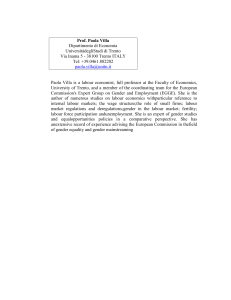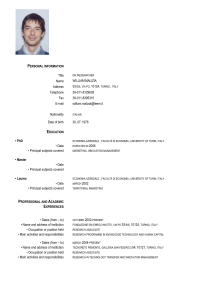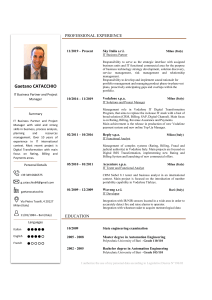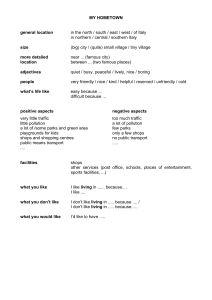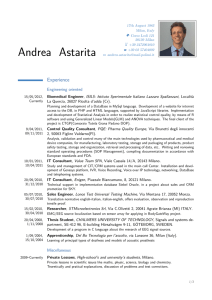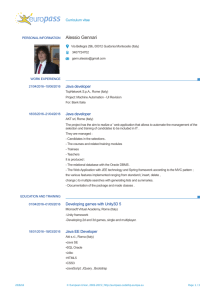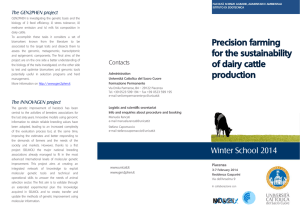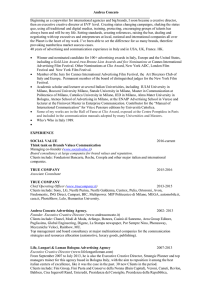caricato da
senanal962
Child Labor in Italy: Online Work & Education Impact
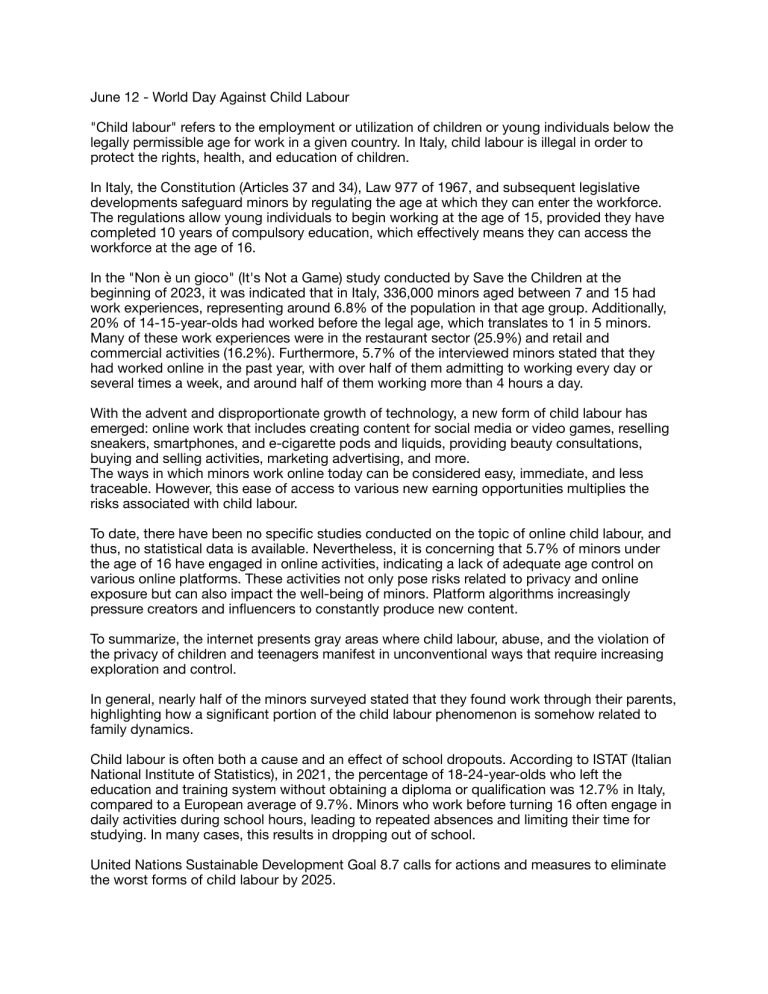
June 12 - World Day Against Child Labour "Child labour" refers to the employment or utilization of children or young individuals below the legally permissible age for work in a given country. In Italy, child labour is illegal in order to protect the rights, health, and education of children. In Italy, the Constitution (Articles 37 and 34), Law 977 of 1967, and subsequent legislative developments safeguard minors by regulating the age at which they can enter the workforce. The regulations allow young individuals to begin working at the age of 15, provided they have completed 10 years of compulsory education, which e ectively means they can access the workforce at the age of 16. In the "Non è un gioco" (It's Not a Game) study conducted by Save the Children at the beginning of 2023, it was indicated that in Italy, 336,000 minors aged between 7 and 15 had work experiences, representing around 6.8% of the population in that age group. Additionally, 20% of 14-15-year-olds had worked before the legal age, which translates to 1 in 5 minors. Many of these work experiences were in the restaurant sector (25.9%) and retail and commercial activities (16.2%). Furthermore, 5.7% of the interviewed minors stated that they had worked online in the past year, with over half of them admitting to working every day or several times a week, and around half of them working more than 4 hours a day. With the advent and disproportionate growth of technology, a new form of child labour has emerged: online work that includes creating content for social media or video games, reselling sneakers, smartphones, and e-cigarette pods and liquids, providing beauty consultations, buying and selling activities, marketing advertising, and more. The ways in which minors work online today can be considered easy, immediate, and less traceable. However, this ease of access to various new earning opportunities multiplies the risks associated with child labour. To date, there have been no speci c studies conducted on the topic of online child labour, and thus, no statistical data is available. Nevertheless, it is concerning that 5.7% of minors under the age of 16 have engaged in online activities, indicating a lack of adequate age control on various online platforms. These activities not only pose risks related to privacy and online exposure but can also impact the well-being of minors. Platform algorithms increasingly pressure creators and in uencers to constantly produce new content. To summarize, the internet presents gray areas where child labour, abuse, and the violation of the privacy of children and teenagers manifest in unconventional ways that require increasing exploration and control. In general, nearly half of the minors surveyed stated that they found work through their parents, highlighting how a signi cant portion of the child labour phenomenon is somehow related to family dynamics. Child labour is often both a cause and an e ect of school dropouts. According to ISTAT (Italian National Institute of Statistics), in 2021, the percentage of 18-24-year-olds who left the education and training system without obtaining a diploma or quali cation was 12.7% in Italy, compared to a European average of 9.7%. Minors who work before turning 16 often engage in daily activities during school hours, leading to repeated absences and limiting their time for studying. In many cases, this results in dropping out of school. fi ff ff fi fl fi United Nations Sustainable Development Goal 8.7 calls for actions and measures to eliminate the worst forms of child labour by 2025.
